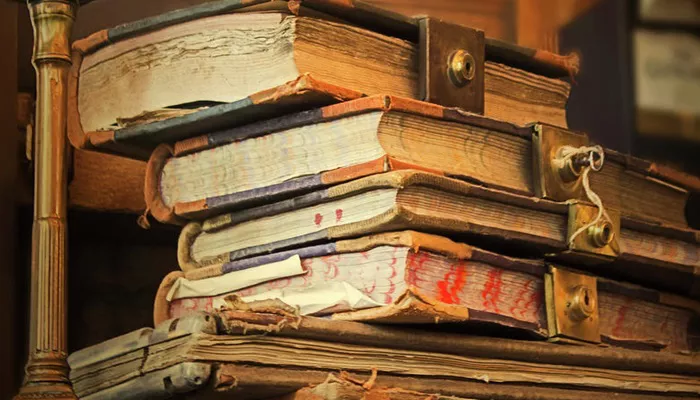Thanksgiving is a cherished holiday in the United States, celebrated with feasts, family gatherings, and a spirit of gratitude. Its origins, however, are deeply rooted in history, intertwining various cultural narratives and events. The traditional account of the first Thanksgiving often points to a harvest celebration in 1621 involving the Pilgrims and Native Americans. This article delves into the historical context, significance, and evolution of Thanksgiving, providing insights into the events that shaped this iconic holiday.
The Context of 1621
In 1620, a group of English settlers, now commonly referred to as the Pilgrims, embarked on a journey to the New World aboard the Mayflower. Seeking religious freedom and a better life, they established a settlement in Plymouth, Massachusetts. The harsh realities of their new environment tested their resilience. Many faced starvation and disease during the first winter, leading to a significant loss of life.
By the fall of 1621, the surviving Pilgrims had formed an alliance with the local Wampanoag tribe. This alliance was crucial for their survival, providing them with essential knowledge about the land, local resources, and agricultural practices. The Wampanoag, led by Chief Massasoit, played a vital role in helping the Pilgrims learn to cultivate corn, beans, and squash—three staple crops that would sustain them through harsh winters.
The Harvest Celebration
The successful harvest of 1621 marked a pivotal moment for the Pilgrims. They decided to hold a feast to give thanks for the bounty they had received. This three-day event, often considered the first Thanksgiving, was not just a meal but a celebration of survival and newfound friendship.
The gathering included about 50 Pilgrims and around 90 Wampanoag men. The feast likely featured a variety of foods, including venison, fowl (such as wild turkey and ducks), and crops harvested from the fields. Unlike modern Thanksgiving meals filled with pie and cranberry sauce, the 1621 feast would have been quite different, reflecting the local ingredients available at the time.
See also: The Meaning of Thanksgiving to the Pilgrims
The Cultural Significance
The first Thanksgiving was not solely a Pilgrim celebration; it represented a moment of cooperation and understanding between two cultures. The Wampanoag and the Pilgrims engaged in a mutual exchange of knowledge, skills, and traditions. This event was a rare moment of unity amidst a history of conflict between European settlers and Native Americans.
The celebration can also be seen as a reflection of the spiritual beliefs of the Pilgrims. Their journey was driven by a desire to practice their faith freely, and the feast was a way to express gratitude to God for their survival and prosperity. They believed that recognizing their blessings was essential to their faith and community.
Evolution of the Holiday
While the 1621 feast is often cited as the first Thanksgiving, the holiday did not become an annual event until much later. For decades, Thanksgiving celebrations were sporadic and varied by region. Some colonies celebrated harvest festivals, while others marked days of fasting and prayer.
In 1789, President George Washington proclaimed a national Thanksgiving Day, emphasizing the importance of gratitude and reflection. However, it was not until the 19th century that Thanksgiving evolved into a holiday celebrated on the fourth Thursday of November.
Sarah Josepha Hale, a prominent magazine editor, played a crucial role in advocating for Thanksgiving as a national holiday. She wrote numerous articles and letters to politicians, urging the establishment of a formal Thanksgiving holiday. Her efforts culminated in 1863 when President Abraham Lincoln proclaimed Thanksgiving a national holiday, solidifying its place in American culture.
Modern Thanksgiving Traditions
Today, Thanksgiving is celebrated with various traditions, including family gatherings, parades, and football games. The modern Thanksgiving meal often features turkey, stuffing, cranberry sauce, and pumpkin pie, symbolizing the holiday’s evolution over the centuries.
Despite its commercialization, the essence of Thanksgiving remains rooted in gratitude and reflection. Many families take time to express what they are thankful for before enjoying their meal. This practice, though it has transformed over time, honors the spirit of the first Thanksgiving—a celebration of community, survival, and thankfulness.
Contemplating the Legacy
As we celebrate Thanksgiving today, it is essential to recognize the complex history that accompanies this holiday. While we enjoy feasting with family and friends, we should also reflect on the original event and its implications. The first Thanksgiving was a moment of cooperation between two distinct cultures, yet it also marked the beginning of a complex relationship that would lead to significant challenges for Native Americans.
Acknowledging this history invites us to celebrate Thanksgiving in a more inclusive manner, honoring the diverse cultures that contribute to the American narrative. It encourages us to foster understanding, respect, and gratitude for all who have shaped our history.
Conclusion
The first Thanksgiving in 1621 was not merely a feast but a significant cultural event that reflected the struggles, resilience, and cooperation of the Pilgrims and the Wampanoag. As we gather to celebrate today, it is crucial to remember the roots of this holiday, its evolution, and the ongoing dialogue about its historical implications. Thanksgiving remains a time to express gratitude, build community, and reflect on our shared history, promoting understanding and respect for all cultures that enrich our lives. Through this lens, we can celebrate Thanksgiving not just as a holiday but as a profound opportunity for connection and appreciation in our diverse society.
Related topics:

